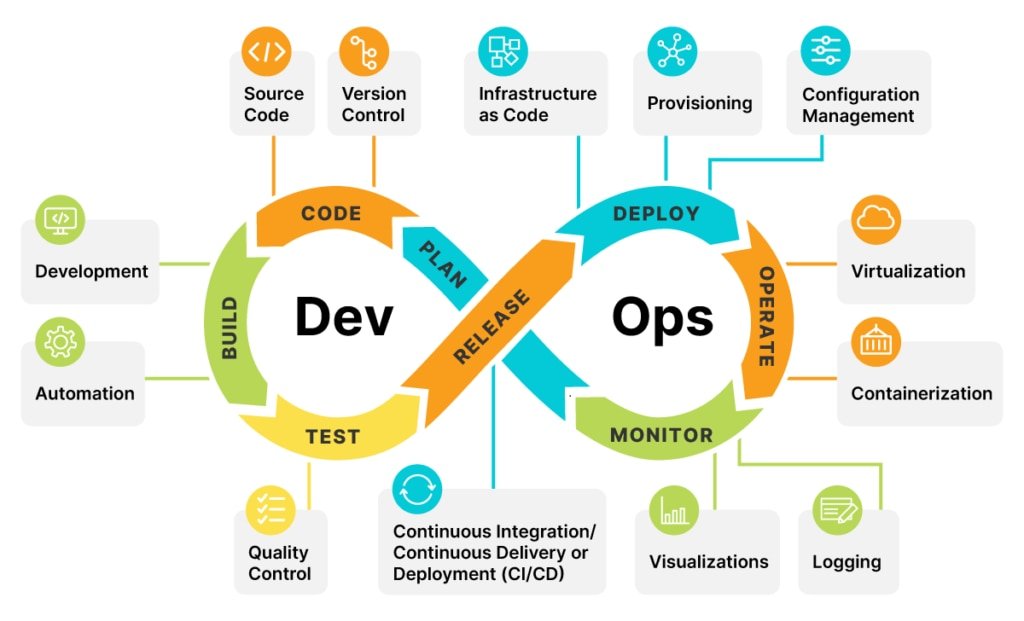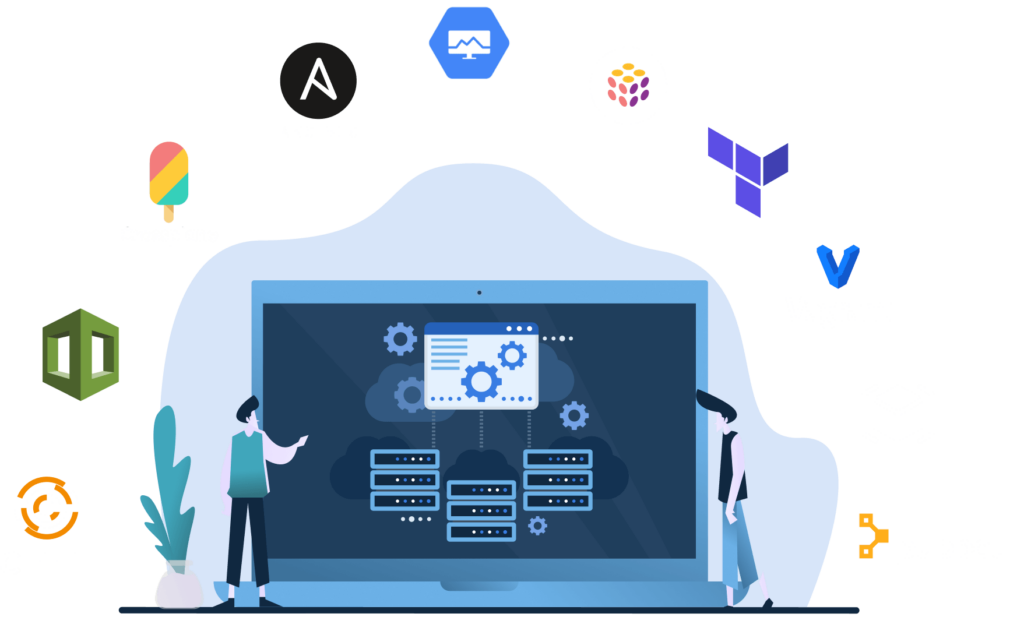Alright, first of all, I don’t predict, this is not a prediction, but rather a study of market dynamics, and trends evolutions. Did you know that at least 80% of companies worldwide report that they have seen unimaginable improvements in their IT departments since adopting the cloud? That enough should be a reason to draw the curiosity to the cloud-computing field, because, as more companies worldwide undergo strategic digital transformations, professionals with cloud-computing expertise will be in high demand. And depending on the role, you might already have all the required expertise like networking, containerization, IaC, programming languages, and serverless, among others.
The median salary within this field was more than $146,000 in 2018—a significant increase from the median $124,300 pay just two years earlier.
And, during the same period, there were more than 50,000 cloud-based job openings, with no signs of slowing down.
But you might be wondering, what is cloud computing? here is my ELI5: cloud computing allows you to rent your IT, instead of buying it. So for example, rather than investing heavily in acquiring database licenses, and servers to install them on, maintain them, upgrade them, patch them… Companies opt to access their database needs via the Internet or the cloud and only pay for what they use. These cloud services now include but are not limited to servers, storage, databases, networking, analytics, and business intelligence.
so as you can see, cloud computing provides the speed, scalability, and flexibility that enables businesses to develop, innovate, and support business IT solutions.
Now there is a myth that being an expert in the cloud, you can only work for FAANG companies: the Amazons and the Googles of the world, and I hate to break it to you because working for the 4 main cloud vendors (AWS, GCP, Azure, Alibaba) is one small piece of the puzzle:
– There are consulting giants: Deloitte, KPMG, and Accenture of the world who are constantly hiring cloud computing experts due to rising demand.
– Startups are looking to move from ideation to market as quickly as possible and thus, are looking for cloud experts for guidance.
– And don’t exclude established companies: as of 2020, 6 out of 10 businesses moved their work to the cloud. and 70% of those plan to increase their budgets in the future as they reported better financials on costs. So, without further ado, let’s look at some of the best cloud computing careers today.
1. Cloud Architecture
Cloud architects develop and implement cloud setups, and their focus is on perfecting cloud architecture. They spend time ensuring reliability, security, and scalability while also concentrating on the system’s performance. Cloud architects are often responsible for bridging the gap between complicated business challenges and cloud solutions.
Cloud computing architecture enables organizations to reduce or eliminate their reliance on an on-premises server, storage, and networking infrastructure. Organizations adopting cloud architecture often shift IT resources to the public cloud, eliminating the need for on-premises servers and storage, thus reducing the need for IT data centre real estate, cooling, and power, and replacing them with a monthly IT expenditure.
This shift from capital expenditure to operating expense is a major reason for the popularity of cloud computing today.
If you are thinking of becoming a Cloud Architect, you will ideally already have a strong background in cloud computing or a similar technical area. If you feel comfortable with most of the following concepts or at least some of them, then you are probably on the right track. Otherwise, I would recommend some initial study or work in these areas before you tackle the Cloud Architect role.
· Good knowledge of at least one operating system: Linux, Unix, Solaris, Ubuntu or, Windows.
· Good understanding of networking: TCP/IP, IP addresses, HTTP, DNS. I suggest that you have some familiarity with these concepts before pursuing a role as a cloud architect.
· Computer programming languages: You will need at least a minimal understanding of a programming or scripting language. This is probably not a must, but it will definitely help.
· Security: Security in the cloud is essential, and consequently, a high-level understanding of key security concepts is a must for a Cloud Architect. So, initial knowledge of some basic security concepts, such as firewalls, is necessary.
As of January 2022, the average annual pay for a Cloud Architect in the United States is $153,318 a year. Not bad at all, isn’t it?
2. Cloud Security Specialist
The second career field you can pursue is cloud security. Cloud security, also known as cloud computing security, is a collection of security measures designed to protect cloud-based infrastructure, applications, and data. These measures ensure user and device authentication, data and resource access control, and data privacy protection. They also support regulatory data compliance. Cloud security is employed in cloud environments to protect a company’s data from distributed denial of service or DDoS attacks, malware, hackers, and unauthorized user access or use.
Most companies hiring a cloud security specialist are looking for someone with a bachelor’s degree in computer science, programming, information security, or a related field. Your formal education can be supplemented with IT certifications, on-the-job experience, familiarity with languages like Python, and knowledge of DevOps tools commonly deployed within the ecosystems of cloud service providers.
A cloud security specialist will likely partner with cloud engineers and cloud architects to deliver complete cloud security solutions. The responsibilities of the cloud security specialist will vary depending on the company’s size. Why? A smaller company will have different challenges than a larger enterprise organization.
No matter the size of the business, cloud security specialists play a part in planning secure cloud system requirements and constructing, validating, and deploying the system. Cloud security specialists are also tasked with monitoring and detecting malicious activity once the system is deployed.
As of January 2022, the average annual pay for a Cloud Security Specialist in the United States is $96,401 a year.
3. IoT Specialist
The Internet of Things or IoT refers to the interconnection of everyday objects or tools that we usually use with the Internet. The incorporation of microprocessors and sensors to objects plus the automatic connection to the network have allowed the collection and transfer of data and the automation of many processes without requiring user interaction, which was manual until now.
Some examples of this concept are wearables, which can measure temperature or heart rate, and smart homes, which allow us to self-regulate or control lights, thermostats, or appliances from a smartphone or assistant.
IoT specialists are in charge of applying Internet of Things strategies to everyday objects and fostering new functionalities and uses within this context of greater hyperconnectivity.
To carry out their work, they must know multiple technologies that refer to microcontroller programming, cheaper sensors, standardization of cloud-based platforms, data analysis, machine learning, or cybersecurity issues, among others.
The primary task of an IoT specialist or engineer is the creation and development of the devices, sensors, and software that allow a device to connect seamlessly with other systems. They research, create, test, and document IoT solutions with integrated systems and devices.
Though the tasks of IoT engineers vary depending on the industry they work in; their duties can include designing, coding, and testing features of devices meant to connect to other systems and devices. They may also provide solutions to any issues related to the connection of networks and platforms and may also work as service designers by analyzing user needs.
A crucial skill that an IoT Engineer must possess is an in-depth understanding of computer programming and network security. They must also have knowledge of sensors, machine learning, and AI and must have experience in working with front-end and back-end systems as well as custom-built firmware and hardware.
IoT engineers also have a working knowledge of software like Netbeast, Neura, OpenSensors, Node.js, and have expert knowledge of Linux OS. They should be well versed with multiple programming languages such as Embedded-C, Embedded C++, JavaScript, and Python.
The salary of an IoT engineer may vary depending on several factors, such as the job they have and the industry they are in. Someone just starting out can earn up to $110,000 per year, whereas an engineer with a bit of experience and additional skills can earn up to $129,300. An engineer in a more senior position can earn up to $144,600 annually.
4. Data Engineering
Data engineering is the practice of designing and building systems for collecting, storing, and analyzing data at scale. It is a broad field with applications in just about every industry. Organizations have the ability to collect massive amounts of data, and they need the right people and technology to ensure the data is in a highly usable state by the time it reaches the data scientists and analysts.
In addition to making the lives of data scientists easier, working as a data engineer can give you the opportunity to make a tangible difference in a world where we’ll be producing 463 exabytes per day by 2025. That’s one and 18 zeros of bytes worth of data. Fields like machine learning and deep learning can’t succeed without data engineers to process and channel that data.
Data engineers work in various settings to build systems that collect, manage, and convert raw data into usable information for data scientists and business analysts to interpret. Their ultimate goal is to make data accessible so that organizations can use it to evaluate and optimize their performance.
With the right set of skills and knowledge, you can launch or advance a rewarding career in data engineering. Many data engineers have a bachelor’s degree in computer science or a related field. By earning a degree, you can build a foundation of knowledge you’ll need in this quickly-evolving field. Consider a master’s degree for the opportunity to advance your career and unlock potentially higher-paying positions.
Data engineering is also a well-paying career. The average salary in the US is $111,933, with some data engineers earning as much as $164,000 per year. Compare this with other data roles, such as data analyst earning $68,000 or database administrator banking $81,444, and you can see that data engineers are compensated well for their skills.
5. Platform Engineering
In this age of digital transformation, companies are continually looking to innovate to gain a competitive advantage. One way to gain a competitive advantage is to have an efficient mechanism for deploying and operating applications in production that enables teams to provide end-user features faster. To achieve that, many companies realized that it helps to have a dedicated team that builds and maintains a common platform and constantly looks to innovate how applications are deployed and operated in Production. This practice of creating a common platform as a product is called Platform Engineering.
The primary qualifications for getting a job as a platform engineer are a bachelor’s degree in a related field and some experience with large technology systems. Many employers have a long list of specific capabilities they look for in different types of software engineers, and this role is no exception. Getting training and certification in various programming languages and online systems is beneficial for landing a job. However, most employers are willing to be flexible as long as you have experience and a willingness to learn. Additional skills for a career in this field include creativity, interpersonal skills, research skills, and the ability to program in a larger team environment when necessary.
The salaries of Platform Engineers in the US range from $18,280 to $185,000, with a median salary of $100,000. The middle 57% of Platform Engineers makes between $100,000 and $125,000, with the top 86% making $185,000.
So, there you have it, the crème de la crème of cloud computing-related jobs. Technology, professional services, finance, and banking companies round out the majority of the employers with cloud computing job openings.
Several companies in other industries are also hiring cloud computing professionals to manage and support their core infrastructure.
Amidst the upheavals in the job market in the post-pandemic era, if there’s one thing that has remained stable, it is the demand for skilled IT workers. In fact, the IT sector continues to be one of the few bright spots in the hiring world, with the average cloud computing salary reflecting the demand.
As I conclude, here are some tips for anyone who wants to jumpstart a career in cloud computing.
· Choose the right cloud computing certification
· Build your cloud portfolio
· Ensure you have reputable references
· Expand your network, not computer network, but with people, experts like me…did I just say that? Well, I did. If you have any questions related to my work, feel free to leave them in the comments below, and I will definitely respond to them.
· Here is another tip. Be curious enough and scroll, comb, and play in the cloud to find out new things, trends, and whatnot.
· And finally, show determination. Colin Powell once said that a dream doesn’t become a reality through magic. It takes sweat, determination, and hard work.
And that’s it from me today. In the coming videos, I will be covering more well-paying careers in the IT space, so be sure to subscribe so that you don’t miss any of them. Until next time, stay safe.





